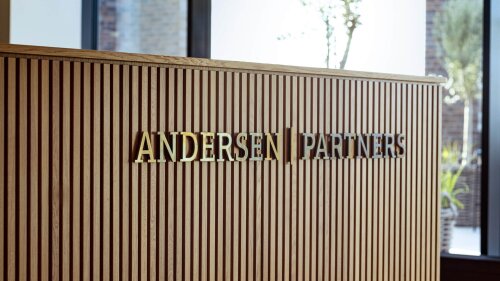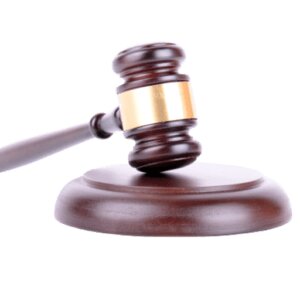Best General Litigation Lawyers in Kolding
Share your needs with us, get contacted by law firms.
Free. Takes 2 min.
List of the best lawyers in Kolding, Denmark
About Litigation Law in Kolding, Denmark
Litigation in Kolding, Denmark involves resolving legal disputes between parties through the Danish court system. Whether the disputes are civil, commercial, or relate to employment or family matters, litigation is the formal process through which disagreements are presented before a judge for a legal decision. The Kolding City Court is the primary venue for most local disputes, but more complex or high-value cases can be escalated to higher courts. Danish litigation generally follows the legal framework established under Danish law, emphasizing fairness, transparency, and due process for all parties involved.
Why You May Need a Lawyer
Litigation can be complex and often involves strict procedural rules and tight deadlines. People in Kolding typically seek legal help for litigation in situations such as:
- Commercial disputes between businesses or business partners
- Contract disagreements or breaches
- Landlord and tenant disputes
- Employment disputes, such as wrongful termination or wage issues
- Debt collection and financial claims
- Family law matters, including divorce and child custody disagreements
- Personal injury or insurance claims
- Disputes involving property boundaries, purchase, or ownership
Having a skilled lawyer ensures your interests are protected, proper documents are filed, and you receive expert guidance through every stage of the litigation process.
Local Laws Overview
Litigation in Kolding is governed by the broader Danish judicial system, but there are specific local practices and court procedures to be aware of:
- Civil procedure is governed by the Danish Administration of Justice Act, which lays out how legal cases are handled from filing to judgment.
- Most litigation starts at the Kolding City Court (Byret), unless the case is of a certain value or complexity which may place it in the High Court (Landsret).
- In Denmark, the courts encourage parties to resolve disputes through dialogue or mediation before the trial stage, where possible.
- All parties involved in litigation are expected to cooperate transparently and must disclose relevant evidence to each other in advance of hearings.
- Written submissions and key documents are essential in Danish litigation, as are strict adherence to deadlines set by the court.
Understanding local customs and legal requirements is crucial for anyone embarking on litigation in Kolding, making professional legal advice essential.
Frequently Asked Questions
What types of cases do courts in Kolding typically handle?
Kolding City Court deals with civil disputes, family law matters, debt collection, minor criminal cases, and tenancy disagreements among others.
Do I need a lawyer to go to court in Kolding?
While you are not always legally required to have a lawyer, legal representation is highly recommended due to complex procedures and the importance of presenting your case correctly.
How long does a typical litigation case take in Kolding?
The duration varies depending on the complexity and workload of the court. Simple matters may resolve in a few months, while complex or contested cases can take over a year.
What are the costs associated with litigation in Kolding?
Costs include court fees, lawyer fees, and possible expert or witness expenses. Some cases may allow for recovery of costs from the opposing party if you win.
Can disputes be resolved without going to court?
Yes. Danish courts and lawyers often encourage negotiation or mediation before resorting to litigation. Settling outside court can save time and money.
What is the role of evidence in litigation cases?
Evidence is crucial. Parties must provide all relevant documentation and witness testimony to support their claims, and must disclose evidence to the opposing party in advance.
Is court communication conducted in Danish?
Yes. Proceedings, documents, and decisions are typically in Danish. Arrangements for translators can be made if required.
What happens if I lose my case?
If you lose, you may be ordered to cover the other party’s legal costs and court fees, in addition to your own. You may also have to comply with the court’s judgment or orders.
Can I appeal a court decision in Kolding?
Yes. If you disagree with a decision, you may have the right to appeal to the High Court or, in some cases, further to the Supreme Court, depending on the matter.
How do I find a qualified litigation lawyer in Kolding?
You can consult the Danish Bar and Law Society, get recommendations from local organizations, or search for law firms specializing in litigation within the Kolding area.
Additional Resources
If you need further assistance or information, consider contacting the following resources:
- Kolding City Court (Kolding Byret) - for information on case handling and court procedures
- Danish Bar and Law Society (Advokatsamfundet) - to find registered lawyers and legal standards
- Mediation services and local arbitration boards - for out-of-court dispute resolution
- Legal aid organizations in Denmark - for guidance if you have limited financial resources
- Kolding Municipality’s Citizen Service - for referrals and guidance on legal matters
Next Steps
If you are considering litigation in Kolding, Denmark, you should start by gathering all relevant documents and details about your dispute. Next, consult with a qualified local litigation lawyer who can assess your case, explain your options, and guide you through the early steps, such as negotiation or mediation. If a court case becomes necessary, your lawyer will help you prepare your case, file the required documents, and represent you in court. Always consider your lawyer’s advice about the prospects and risks involved at each stage, and maintain open and timely communication throughout the process.
Taking these steps will give you the best possible chance of navigating the legal system effectively and achieving a favorable resolution to your dispute in Kolding.
Lawzana helps you find the best lawyers and law firms in Kolding through a curated and pre-screened list of qualified legal professionals. Our platform offers rankings and detailed profiles of attorneys and law firms, allowing you to compare based on practice areas, including General Litigation, experience, and client feedback.
Each profile includes a description of the firm's areas of practice, client reviews, team members and partners, year of establishment, spoken languages, office locations, contact information, social media presence, and any published articles or resources. Most firms on our platform speak English and are experienced in both local and international legal matters.
Get a quote from top-rated law firms in Kolding, Denmark — quickly, securely, and without unnecessary hassle.
Disclaimer:
The information provided on this page is for general informational purposes only and does not constitute legal advice. While we strive to ensure the accuracy and relevance of the content, legal information may change over time, and interpretations of the law can vary. You should always consult with a qualified legal professional for advice specific to your situation.
We disclaim all liability for actions taken or not taken based on the content of this page. If you believe any information is incorrect or outdated, please contact us, and we will review and update it where appropriate.











